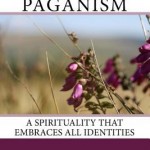I’d had an idea that I might interview some Pagan Studies scholars for this blog (and I still might!), but I’m delighted to see that Ethan Doyle White has scooped me. The most recent interview is with Chas Clifton, author of Her Hidden Children (a history of contemporary American Paganism) and current editor of The Pomegranate, the first peer-reviewed journal dedicated explicitly to Pagan Studies.
Clifton touches on the use of the word “Pagan” as an umbrella term for a style of religiosity, rather than a specific religion:
Jone [Salomonsen] and I have felt from the beginning that Pagan studies is not so much about this group or that, but about Paganism as a way of being religious. For example, we have had presentations that focused on the treatment of images in a Pagan setting and in Mediterranean Catholic settings, which leads to joking about “the i-word” (idolatry) and to discussions of whether it is useful and usable in a scholarly setting or whether one would do better to adopt some term like “sacred materiality.”
So far, White has also interviewed Dave Evans, a scholar of esotericism who helped found The Journal for the Academic Study of Magic.
In Pagan theology news, I’ve noticed a growing emphasis on animistic attitudes among Pagans over the past several years–in other words, a increasing conviction that specific work with the local land, plants, animals, and ancestors is necessary for grounded religious practice. In fact, when I came on as editor for the Pagan channel, I immediately received two different proposals for a blog about the spirituality of Place. The result is A Sense of Place, which I couldn’t be more pleased with.
I was interested to see that in esoteric publisher Scarlet Imprint’s year-end post, a turn toward animism (and away from attempts to perfect the individual self) is cited as necessary for the birth of a new era.
We too can be found engaging in the worst kind of self-absorption, a project of self-deification that is more pop psychology and atomised consumer narcissism than fierce path. The obsession with the perfection of the self is the shiny surface of our corrupt capitalist cult. It does not challenge power. Evolution does not occur through a passive sense of entitlement, or the acquisition of trinkets, or grades. It requires more radical work. Our hands need to get dirtier. […]
Where we differ from the New Age is that magic and witchcraft must be grounded in our relationship with the land, with community, with nature. Stating this has been ‘unfashionable’ for those who wish to exist in a bubble where the spirits that they talk with are not embedded in the physical world but are fragments of their psyches. This is not a position that our ancestors would recognise, we are part of a continuum, a continuum which is being raped and destroyed. […] We need to understand ancestry, land, spirit as a living system which must be defended with tooth and claw. This vital sense of animism is what must animate us. Our proof must be our work, not our unfulfilled dreams, but in living mythically, in embodied action.
The tone of the article is harsh, but along with animism, I notice another theme here that’s being raised by other thinking Pagans: namely, an increased suspicion of radical individualism, because of the difficulty it creates in forming community and wielding collective power.
I enjoy online Pagan community. But in 2013, let’s not forget to get our hands in the dirt.
















